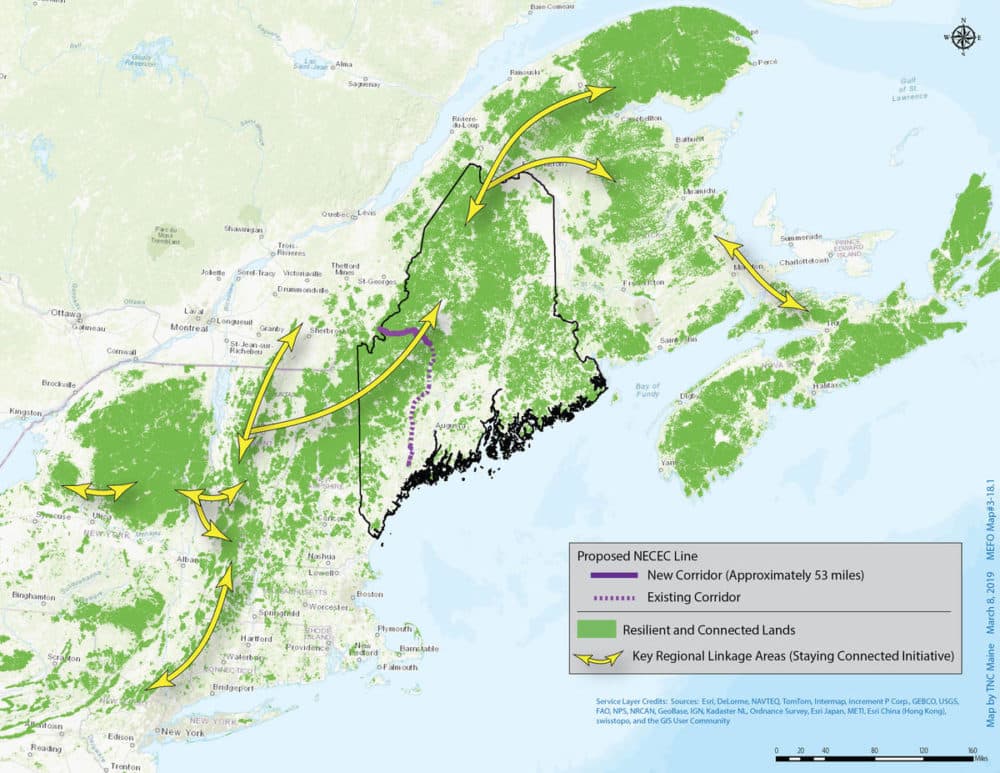Advertisement
Maine Commission Certifies Hydro Project Sought by Mass.

The plan to deliver power from Hydro Quebec to the Massachusetts and New England grid via the New England Clean Energy Connect transmission project cleared its latest hurdle Wednesday, though an environmental group cried foul.
The Maine Land Use Planning Commission, by a 5-2 vote, certified that the 145-mile transmission project of Central Maine Power Company, an Avangrid Inc. subsidiary, is an "allowed use" that "complies with all applicable land use standards."
The Natural Resources Council of Maine said the decision "ignores the enormous harm that the proposed transmission line would have on the recreational experience, scenic character, and natural resources in Maine's Western Mountains."
"The evidence and testimony presented before LUPC made clear that this project would be a bad deal for Maine and cause irreparable damage to the largest contiguous temperate forest in North America. At every single opportunity to share public comments, Maine people showed up in force to voice their concern that the CMP corridor would forever change the North Woods and is incompatible with the existing scenic and recreational uses on which the region depends," NRCM clean energy attorney Sue Ely said. "Mainers have made it clear they believe that with no verifiable reduction of carbon pollution the project is simply not worth the enormous damage that would be done to Maine’s forests and wildlife."
NECEC still needs to receive the final approval of Maine's Department of Environmental Protection and others before it can be built and can deliver about 9.45 terawatt-hours per year of clean hydropower to the Bay State for 20 years.
If the project secures the permits it needs from Maine and the federal government, Massachusetts officials have said it could supply about 17% of the state's electricity demand at a levelized price of 5.9 cents per kilowatt-hour and could reduce Massachusetts electric bills rates between 2 and 4% each year under contracts already approved by the Massachusetts Department of Public Utilities.